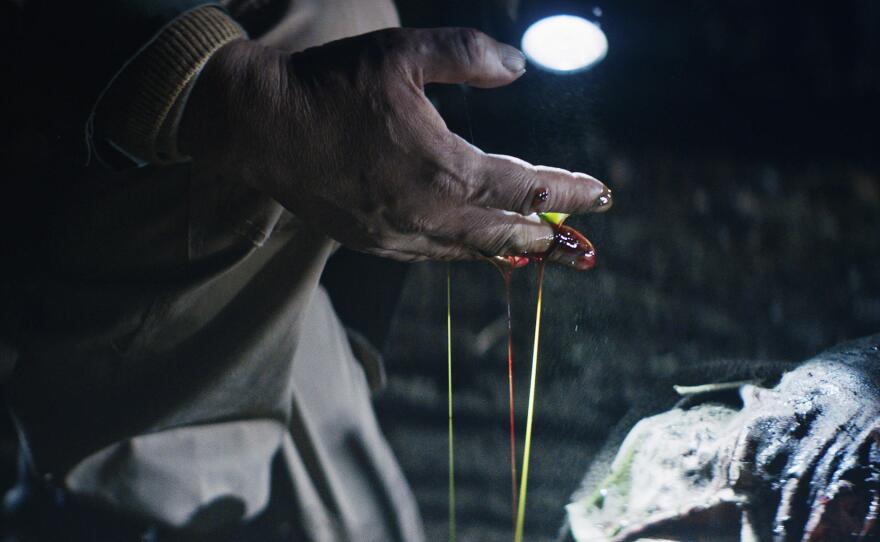With Alfonso Cuaron’s recent multiple Oscar win and San Diego Latino Film Festival entering its second quarter century, I felt it was the perfect time to pull up an archive interview I did with Mexican director Guillermo del Toro.
Guillermo del Toro has worked on both sides of the border, and found success making both personal and Hollywood-backed films. He works in the under-appreciated genre of horror but his horror films push the boundaries of the genre. He turned a vampire into a Christ figure in "Cronos;" sympathized with a ghost in "The Devil’s Backbone;" showed that lethal bugs where just trying to preserve their species in "Mimic;" and revealed compassion for the day-walking vampire superhero in "Blade 2." Taking the monster’s side has given Del Toro’s films a unique perspective that’s further enhanced by his striking visual style. But trying to make films both in and out of Hollywood while maintaining a distinctly personal style is no easy task.
“You can’t be a pussy,” he once told a crowd at Comic-Con in San Diego, “You have to be stubborn and kind of unyielding.” That meant holding out for years until a Hollywood studio finally approved his choice of Ron Perlman to play Hellboy. Del Toro confesses that if he had been less stubborn he would have more than a half dozen films to his credit for more than a decade in the industry. But he doesn’t regret the choices he’s made even when he can’t claim the films as entirely his own.
“'Mimic' was tampered with, and 'Blade 2' was part of an ongoing franchise,” Del Toro said. “But I enjoyed the hell out of making 'Blade 2.' It was pure joy. It was like the difference between dining out at a little French bistro versus having a six-pack and a pizza. I think I enjoy both. And they are both part of my personality in a strange way.”
I interview Del Toro in 2006 for "Pan’s Labyrinth." The film serves up a dark fairy tale set against the postwar repression of Franco’s Spain. The film centers on a young girl named Ofelia (Ivana Baquero) whose widowed mother Carmen (Adriana Gil) has married Capt. Vidal (Sergi Lopez), a cruel, intimidating man. Vidal actually has no interest in either Carmen or Ofelia, his only concern is that Carmen produce a male heir. Ofelia escapes her stepfather’s oppressive rule and the bleak conditions of the rural military outpost by reading fairy tales. Then Ofelia discovers a garden labyrinth hidden below the nearby forest. Here she finds a refuge inhabited by fantastical creatures. But it’s a dark refuge with monsters than reflect the human ones above.

For this podcast I also speak with San Diego Latino Film Festival founder/executive director Ethan Van Thillo and programmer Moises Esparza. I also speak with Miguel Rodriguez of Horrible Imaginings Film Festival since he worked with Esparza to program Un Mundo Extraño, a showcase of genre films at the festival.


